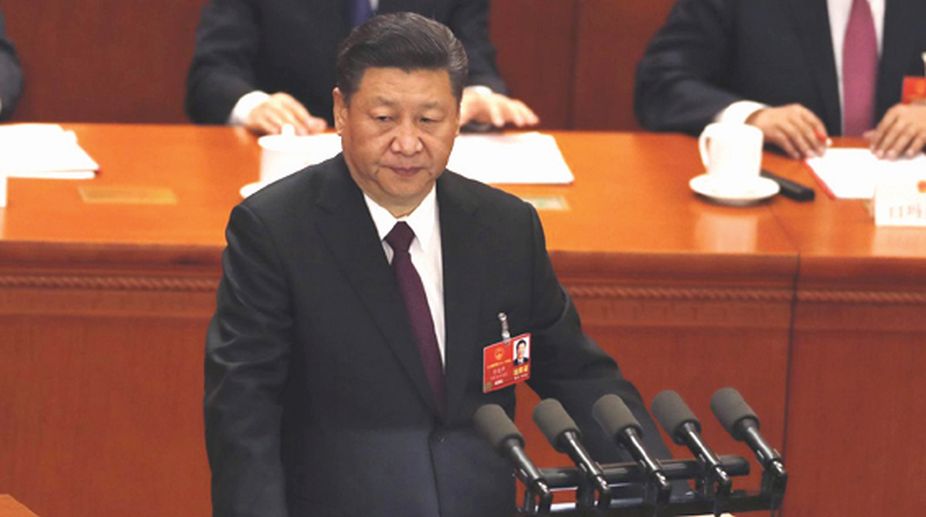Kings and emperors are known to wear a crown of thorns. The prickliest of them in their headgear is an uncertainty about their popular appeal because, unlike democracies, there is no way for the monarchs to know whether they are liked or disliked by hoi polloi.
There is always the fear, therefore, that unknown to the secret services, trouble may be brewing in far corners of the country and in the dark recesses of the people’s minds.
Advertisement
Since there is generally no visible sign of the hidden dissatisfaction, a storm can suddenly break, taking the seemingly safely ensconced rulers unawares.
As Indian prime minister Indira Gandhi told a journalist after the defeat of her party in 1977, she had received no feedback about the popular discontent. She didn’t because a press censorship was in place.
The only way, therefore, for a dictator to ensure that he is not toppled is to conjure up scary scenarios of the threats faced by the country and to present himself as its sole saviour.
By saying that China will have to fight “bloody battles” against its enemies before it can take its rightful place in the world which, the Chinese believe, cannot be anywhere else but at the top of the international pecking order, President Xi Jinping, China’s new “emperor”, has played the usual card of a poseur, who is not only the country’s only hope in a dangerous world, but is also the only person who can carry it to greater heights against insuperable odds. He wants the people, therefore, to stand by him through thick and thin.
Xi, who has anointed himself as the President for life with the approval of China’s subservient Parliament, hasn’t specified against whom the “bloody battles” will be fought.
But the neighbouring countries as well as those far away will have to be wary and closely analyse his various moves. So far, only three such moves have been evident.
One is his warning to those seeking self-determination in Hong Kong that such demands will not be tolerated since China will guard “every inch” of its territory. Any “tricks to split China are doomed to failure”, Xi said, “and will meet with the people’s condemnation and the punishment of history”.
If Hong Kong is only looking for a measure of freedom from Chinese hegemony, Taiwan is already free. So, it also has to brace itself for the punishment of history, which will be meted out by Xi’s army.
The warning has come in the wake of US President Trump’s decision to upgrade his country’s relations with China’s breakaway province. In Xi’s view, any attempt to formalize Taiwan’s separate status is doomed to fail.
More than the trade war with America, it is the existence of a democratic Taiwan right next door which must be riling the Middle Kingdom monarch.
Unless he can bring it under his boot, like Tibet, his elevation to a status which has been enjoyed so far only by Mao Zedong will seem futile and, what is worse, might be regarded as such by the people and provide a handle to his subterranean opponents in the party.
After all, what good is it to be an all-powerful potentate if a pesky country only a few miles away insolently cocks a snook at China’s stifling totalitarianism with its vibrant democracy. So far as Xi is concerned, no cause can be greater for a bloody battle than one to tame the defiant Chinese of Taiwan.
India is another thorn in China’s flesh. Since neither Mao nor Deng Xiaoping had been able to teach it enough of a lesson to keep it cowed, Xi probably believes that history has left it to him to fulfil the task.
Although India has said that China has not yet crossed any red lines in Doklam, the reports of the building of a helipad, sentry posts and trenches suggest that China is looking at the possibility of repulsing any Indian attempt to restore status quo ante as before in the event of a serious confrontation.
Any battle here may not be bloody, but the intention will be to tell India that it is going to be much tougher for it to deal with a President-for-life than a two-term one.
The Narendra Modi government appears to have realized this, which is why it has been rather uncommonly placatory towards Chinese sensitivities in the matter of interacting with the Dalai Lama.
However, while there is no immediate possibility of China upping the ante with regard to Hong Kong and Taiwan, Doklam can be a flashpoint at any time since India and China are standing virtually face to face in this Himalayan plateau.
As Xi begins to flex his muscles, at least verbally, it will be advisable to recall the Indian prime minister, Jawaharlal Nehru’s advice to his ambassador in Beijing in 1958 to remember that the Chinese are “arrogant, devious, hypocritical and thoroughly unreliable”.
India and the world will have to realize that the only way to deal with such belligerant traits is by keeping the powder dry so that the aggressor will know that a battle is rarely one-sided.
The writer is a former Assistant Editor, The Statesman









